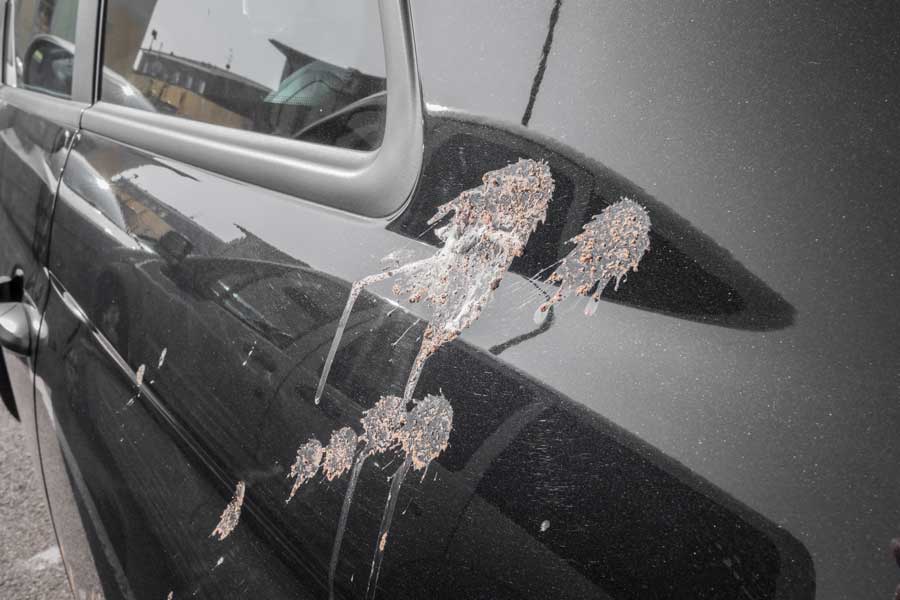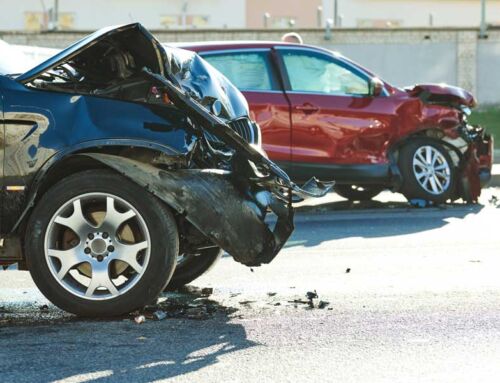Keeping your car’s paint in top-notch condition is more than a matter of appearance. It’s a protective measure that also ensures a higher resale value when it’s time to trade up. The paint on your car serves as a shield against the elements, but some things can penetrate this defense and cause lasting damage.
Here are some of the most damaging elements for car paint, along with tips to prevent or repair the harm they may cause.
Gifts of Nature
Nature’s beauty may be a sight to behold, but it isn’t always gentle on our vehicles. Elements such as bird droppings, dead bugs, tree sap, wet leaves, and even rain can prove detrimental to your car’s paint. These natural substances, while seemingly harmless at first glance, contain properties that may harm the finish of your vehicle, leading to stains, discoloration, and even structural damage if left untreated. In this section, we’ll explore these natural offenders in more detail and provide strategies for preventing or repairing the damage they can cause.
Bird Droppings, Bugs, Tree Sap, and Wet Leaves
- Bird Droppings and Tree Sap: Highly acidic in nature, bird droppings and tree sap can cause severe damage if left untreated. Sun exposure accelerates this process.
- Dead Bugs: Squashed bugs from road trips may seem minor, but their acidic remains can also affect the paint.
- Acid Rain: Even after drying, the acidic droplets can leave stains and fade the paint.
- Ashes and Soot: Similar to tar, these can cause dark staining.
Acid Rain and Atmospheric Pollutants
Prolonged exposure to acid rain and other pollutants can erode the paint’s clear coat, leading to dull, rough patches.
Solution: Regular and thorough hand washing followed by a good coat of wax to protect from nature’s damaging elements.
Car Fluids
The very fluids that keep your car running smoothly can ironically pose a threat to its outward appearance. Substances such as brake fluid and gasoline, essential for the vehicle’s operation, can be particularly harmful to the car’s paint if mishandled. The corrosive nature of some of these fluids can eat away at the paint’s surface, leading to stains and lasting damage that detract from your vehicle’s aesthetic appeal. In this section, we’ll delve into the specific fluids that can cause harm and offer guidance on how to handle them properly to maintain your car’s pristine look.
- Brake Fluid: Acts like paint thinner, destroying any paint in its path.
- Gasoline: Can cause staining if left on too long.
Solution: Immediate dabbing and washing with car paint-friendly soap and water. Waxing also helps protect against future splashes.
Vandalism
Vandalism is not just a malicious act that damages property; it’s an assault on personal pride and a vehicle’s integrity. Whether through intentional harm or careless mischief, the impact of vandalism on a car’s paint can be both visually disturbing and structurally damaging. From common household items like shaving cream and mustard to more deliberate tools like spray paint, the materials used in a vandalism spree can leave behind an ugly trail of destruction on your car’s finish. In this section, we will explore the various substances that can wreak havoc on your car’s paint and provide insights on how to address and prevent this distressing form of damage.
Substances Used in Vandalism That Can Harm Paint
- Shoe Polish
- Shaving Cream
- Silly String
- Spray Paint
- Harsh Chemical Cleaners
- Eggs
- Mustard
- Tomatoes
- Vinegar
- Soda
- Coffee
- Metals (e.g., keys) scratched into the finish
Special Note: Shaving cream and mustard are particularly fast-acting and damaging.
Solution: Immediate removal using a microfiber cloth, followed by hand washing and waxing. For more serious damage, professional restoration may be needed.
Environmental Factors
Environmental factors often play a subtle but relentless role in the wear and tear of your car’s paint. Beyond the noticeable damage caused by accidents or intentional harm, the natural world harbors a host of elements that can slowly erode the car’s finish. From the harsh rays of the sun to salt-laden coastal air, the environment around your vehicle can take a toll on its appearance. Even seemingly harmless factors like temperature fluctuations can contribute to the gradual degradation of paint quality. In this section, we’ll delve into the various environmental factors that can affect your car’s paint and offer solutions to mitigate their impact, preserving the beauty and value of your vehicle.
Sun Exposure
Prolonged exposure to the sun’s UV rays can cause the paint to fade and lose its luster.
Road Salt
In areas where road salt is used to melt ice, this can lead to corrosion and rusting if not washed off regularly.
Sand and Dust
Abrasive particles carried by the wind can scratch and wear down the clear coat over time.
Conclusion
Despite your best efforts to park smartly and clean messes promptly, damage may still occur. Whether you’re dealing with minor surface issues or more serious vandalism, know that the experts at Downtown Autobody in Rohnert Park are ready to help with paint matching or complete restoration. Taking a proactive approach by understanding the threats to your car’s paint and how to combat them can save you both headaches and money down the line. Remember, maintaining the paint isn’t just about aesthetics – it’s about preserving your investment and enjoying your vehicle for years to come.





